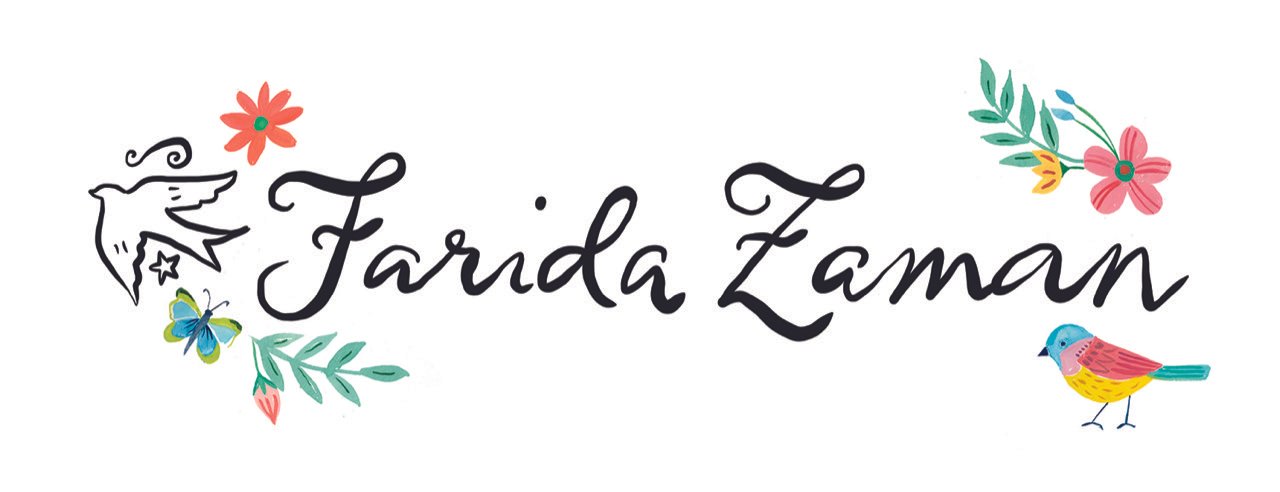Kirkus Reviews
A South Asian grandmother and grandchild make tea—and learn a lesson in patience.
Meena is visiting Nanu, and it’s a very special day: Together, they’re going to prepare a Bengali tea called doodh cha using tea leaves from Bangladesh and mint leaves from Nanu’s garden. As they start, Meena is already craving the cake and samosas that are filling Nanu’s house with a delicious aroma. Though Meena wants to rush, Nanu slows the child down and emphasizes that making tea takes time. While they let the tea simmer and wait for the mint, cloves, ginger, and cardamom to steep, Meena looks at old pictures of Nanu in her childhood kitchen, makes a “fancy card” for Nanu, and listens to Nanu’s childhood stories about going outside to play. At long last, the tea is ready—and it’s perfect! Meena and her Nanu agree that their doodh cha, which they made together, was absolutely worth the wait. This vibrantly illustrated book is a quiet tribute to intergenerational relationships and family traditions. Though it may not offer concrete strategies for helping eager little ones wait for a much-anticipated event, it does teach a valuable lesson without ever verging on didacticism.
A tender, gentle tale that will help children live in the moment. (Picture book. 3-6)
While Meena’s tummy rumbles in anticipation of the snacks they’ll eat, Nanu schools her granddaughter in the culturally significant preparations of doodh cha…This is a touching story of intergenerational love and identity. Cheerful illustrations add some cultural context, and a recipe for doodh cha as well as a personal note from the author lend a sweet touch.”
Meena has come to visit her grandmother, and they are going to make tea. “Nanu” is the Bengali term Meena uses to address her grandmother. First, the pair gather ingredients from the garden; Nanu explains that the tea leaves come all the way from Bangladesh, but they pick other ingredients, like ginger, to make the tea extra flavorful.
Once inside, they work together: Meena crushes cloves and cinnamon; Nanu grates the ginger, and they add all the ingredients to the water to steep. Meena thinks there are too many steps to making tea, but Nanu assures her: all the steps will ensure the tea will be tasty.
Meena is becoming impatient and hungry; she smells the tea brewing while Nanu regales her with stories of her youth. Nanu is especially patient with Meena and redirects her to other activities. Nanu shares old photos of her making doodh cha when she was young, Doodh Cha translates to milk tea. Once the water and spices have simmered, tea, sugar and milk are added to the pot and brought to a simmer.
Meena asks Nanu to paint with her so as to distract herself from her hunger. When the tea is finally ready, Meena takes her first sip and declares it to be ‘Delicious’! They have a spread of snacks to enjoy with their tea, and Meena invites Nanu over to her house next time. They agree that they have to make the tea together because it tastes better than way.
Meena Can’t Wait is a simple and lovely introduction to the South Asian classic cup of tea. Every region of South Asia has different variations of milk tea in which, essentially, spices and tea leaves are simmered in water and milk to make a rich, hot and comforting drink. Despite the many arguments focusing on the specific amounts of each spice and in which order to add them, the end result is always worth it. I can say that the time spent making and drinking chai are some of the best moments I have spent with my family. The tradition of having a cup of chai means time to come together, talk about your day, and enjoy each other’s company. Nanu taught Meena the tradition of doodh cha while spending quality time with her.
Farida Zaman uses watercolor and collage to create the colourful and engaging, illustrations that draw the readers’ eyes to Meena and Nanu’s actions. The story was inspired by Farida’s own visits to her grandmother’s house when she was young.
Recommended
Reviewer:
Nisha Prajapati is a librarian in Toronto, Ontario.



